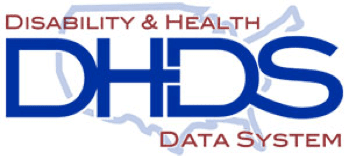
Get started now!
Visit DHDS at https://dhds.cdc.gov
For the first time ever, data ondeafness or serious difficulty hearing is available through the Centers for Disease Control and Prevention’s (CDC) Disability and Health Data System (DHDS). State epidemiologists, researchers, and public health professionals need access to accurate and timely data to inform their state’s promotional activities and to improve the health of the population.
CDC’s DHDS has been updated with 2016 Behavioral Risk Factor Surveillance System to provide accurate data on adults with disabilities. The system is now easier for users to navigate and locate information on improving the health and well-being of those with disabilities.
CDC’s Disability and Health Branch and the National Association of Chronic Disease will be hosting two webinars in June on DHDS.
Thursday, June 21, 2018
3-4 p.m. ET
Beginner’s Guide to DHDS: This course is for users who want to learn the basics of using DHDS to investigate health differences between adults with and without disabilities.
Tuesday, June 26, 2018
3-4 p.m. ET
DHDS: Beyond the Basics: For users who want to explore more advanced features, learn tips about utilizing the data currently available in the system, and see examples of how the data can be used to plan for disability inclusive programs and services.
